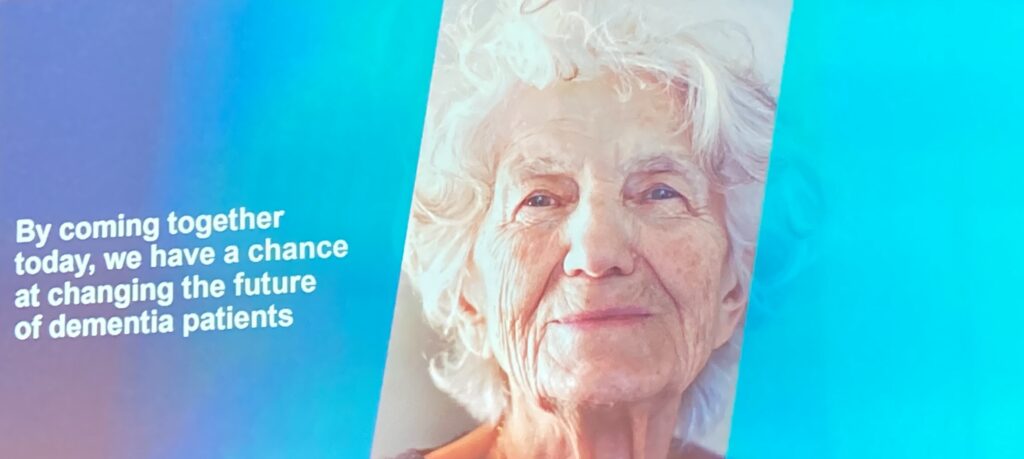28 March 2022, London (by Anna Dé, WBP Policy and Advocacy Lead)
It was a privilege and honour for Women’s Brain Project to attend the in-person WDC Summit that was held on Monday 28 March 2022 at the Francis Crick Institute in London, UK.
The Summit brought together global dementia leaders to reflect on what has been achieved in the fields of research and care, and to identify public policy challenges that need to be overcome to accelerate progress.
It was so wonderful to come together as a global community and meet in-person after the restrictions of COVID.
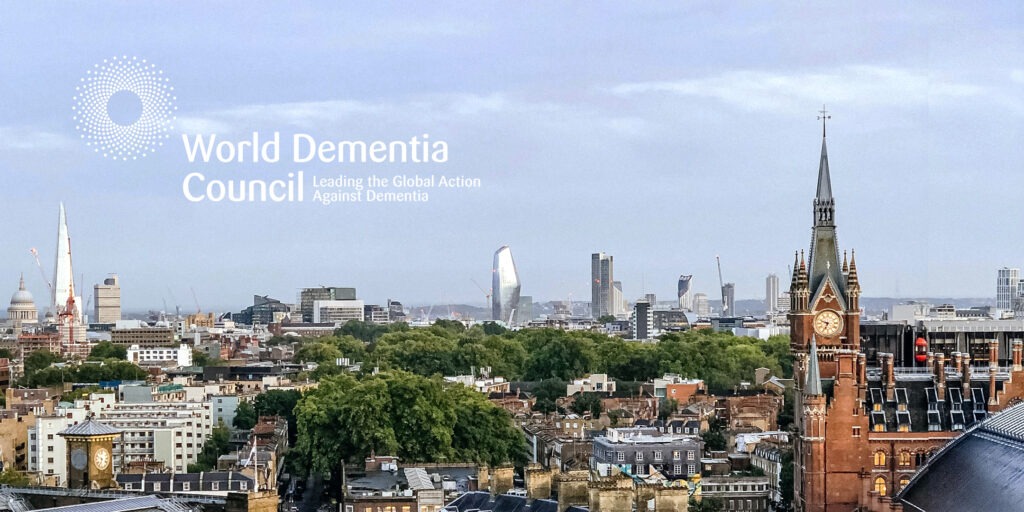
This blog post highlights some of the key takeaways from the Summit.
Keynote
Conny Helder, Minister of Long-Term Care and Sport for The Netherlands outlined the National Dementia Strategy 2021-2030.
The ultimate goal is a ‘world without dementia.’ In other words, being able to cure a person with dementia and being able to prevent people from developing dementia.
Prevention and brain health
Questions raised: What is the value of making brain health interventions for dementia? What advances are being made in the field, including novel science and novel tools?
We were delighted to see prevention having such a prominent focus at the Summit.
The session on prevention and brain health was led by an all-female panel.
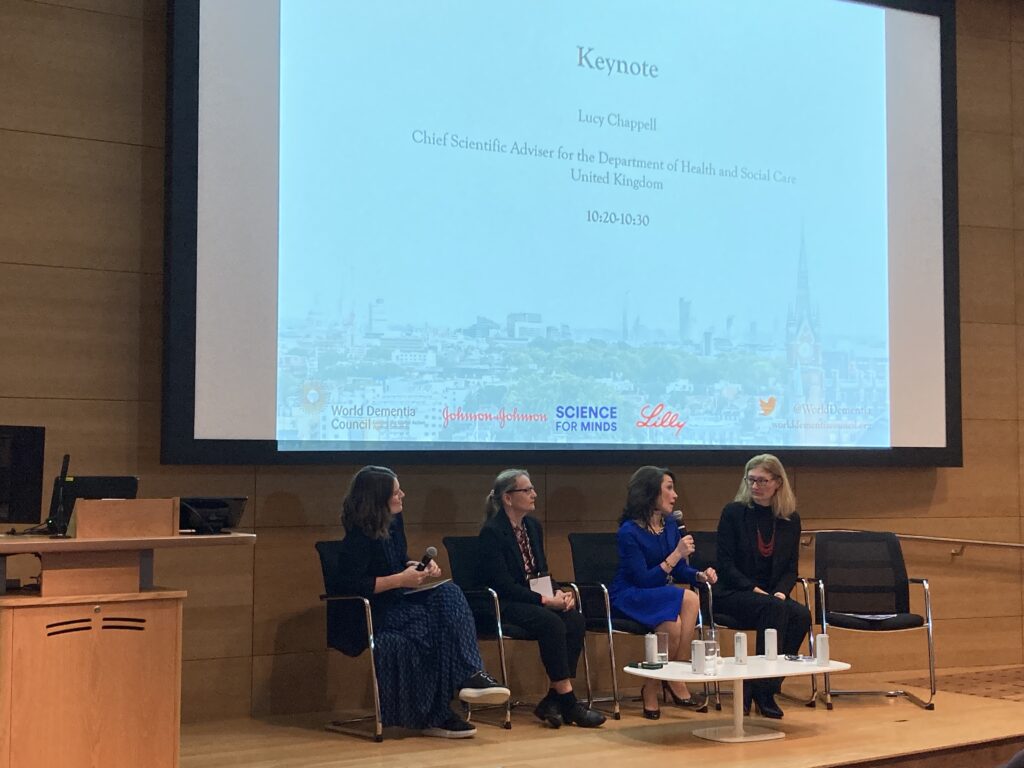
From left to right: Chair: Hilary Evans, Chief Executive Alzheimer’s Research UK, Professor Kaarin Anstey, Professor of Psychology and Director of the Ageing Futures Institute, University of New South Wales, Professor Miia Kivipelto, Professor in Clinical Geriatrics Karolinska Intitutet, Sarah Lock, Senior Vice President for Policy AARP
Professor Kaarin Anstey highlighted what it means to take a population approach to dementia prevention:
- Engage a broad range of stakeholders – governments, industry, workplaces, town planners to address factors that affect brain health through public policies and organisations
- Aim to make environments healthy and choices that will promote brain health the easy choices (e.g. physical activity, healthy food, increasing education, reduce air pollution)
- Work with other non-communicable diseases
- Viewing cognitive health as a form of capital – social capital
The panel emphasised that women are more likely to be vulnerable to dementia.
We need to drive behaviour change and motivate governments to change.
Keynote
Professor Lucy Chappell, Chief Scientific Adviser for the Department of Health and Social Care United Kingdom said that we must talk about brain health, not just dementia. Science enables development and we need innovative disease modifying precision treatments. We also need to support people with dementia and their carers.
A new government strategy to set out plans for dementia care, support, awareness and research in England is expected later this year.
Scientific sessions on Future development of biomarkers and From basic science to new treatments addressed such questions as When will biomarkers become a routine part of clinical practice? What are the obstacles to them doing so? Where is the new treatments pipeline going? What are the emerging trends in research? How do we innovate and fund drug discovery?
Global perspectives on public policy challenges
Questions raised: What public policy challenges are facing different regions of the world? What interventions should policymakers consider to improve quality of care and quality of life?
This was a truly global session – learning from experiences in the US, South America, India and the UK.
COVID has impacted dementia services and we have lost progress during the pandemic.
We need to speak together with one voice to tackle stigma and enhance care delivery.
Data and technology
Questions raised: How do we maximise the benefits of big data developing global cohorts, the comparability and sharing of data, and overcome regulatory barriers? What are the implications and opportunities of new technologies for dementia research and care?
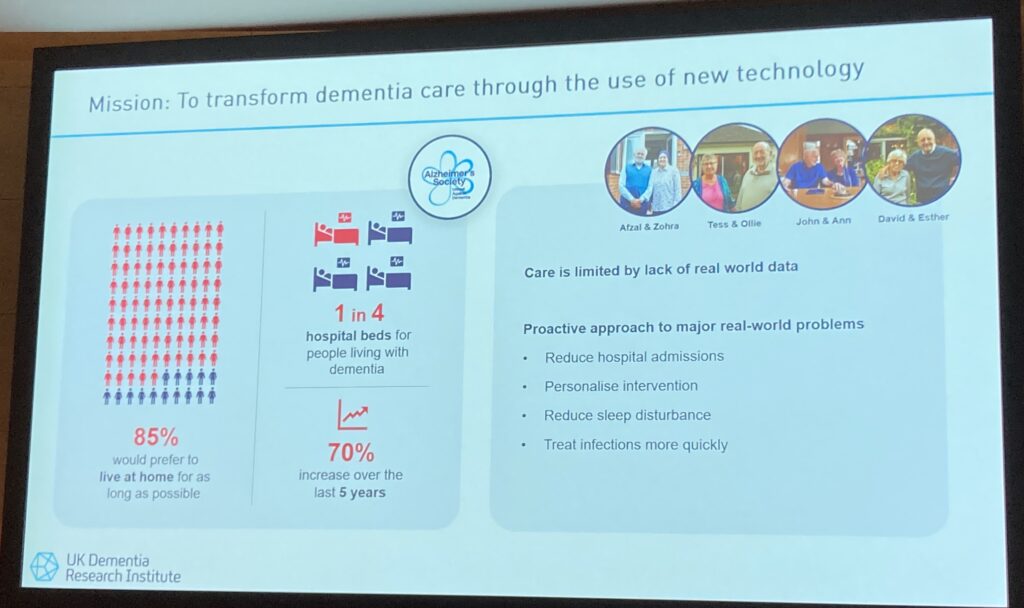
Neurodegenerative disorders touch everyone in some shape or form. We can transform dementia care through the use of new technology.
Keynote
Greg Hunt MP, Minister for Health and Aged Care Australia highlighted that dementia will touch each of us in some way. Ideally, we want to find a cure, and he touched upon prevention, diagnosis, treatment and care.
Are we on track?
Questions raised: Is the research and policy landscape facilitating the development of new treatments? How can we improve global coordination on data and research? Are the right things being funded, is funding sufficient, and are new funding models needed?
Dr Tarun Dua, Lead for Brain Health, World Health Organization said that we are making progress, but we are not yet on track.
She highlighted the WHO Global action plan on the public health response to dementia 2017 – 2025. It aims to improve the lives of people with dementia, their carers and families, while decreasing the impact of dementia on communities and countries. It provides a set of actions to realise the vision of a world in which dementia is prevented and people with dementia and their carers receive the care and support they need to live a life with meaning and dignity.
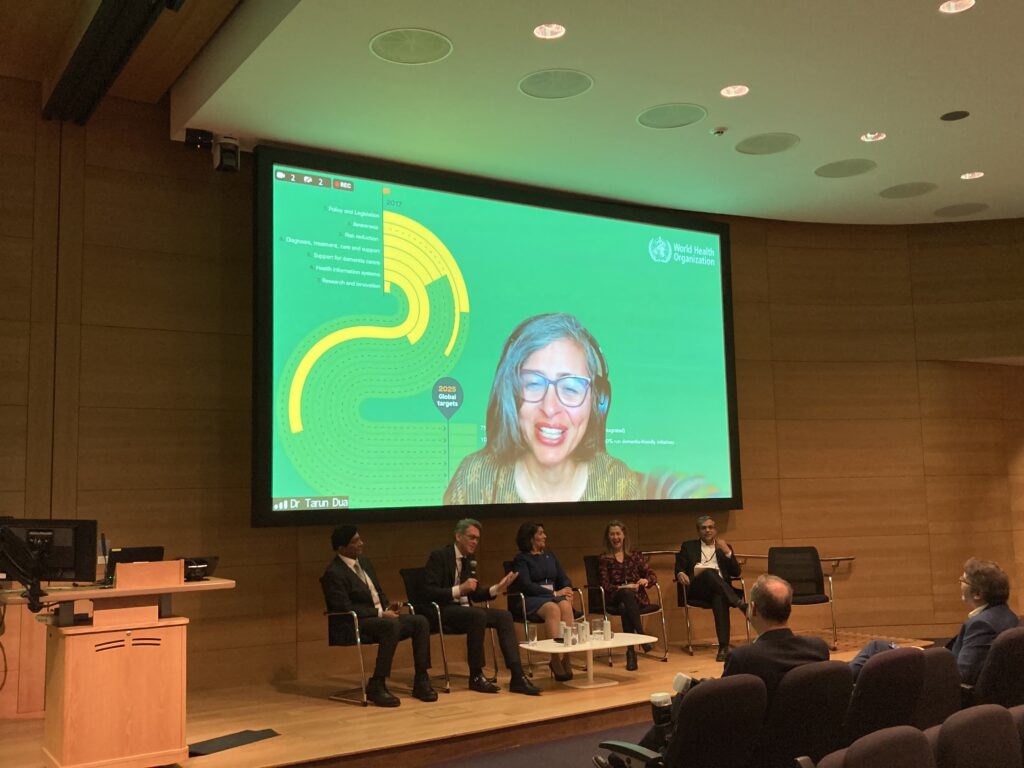
From left to right: Dr Husseini Manji, Global Head for Science for Minds Johnson & Johnson, Chair: Professor Philip Scheltens, Chair, World Dementia Council, Dr Maria Carrillo, Chief Scientific Officer Alzheimer’s Association, Professor Dame Louise Robinson, Professor of Primary Care and Ageing University of Newcastle, Dr Niranjan Bose, Managing Director Gates Ventures, Dr Tarun Dua (on screen), Lead for Brain Health, World Health Organization
This powerful session highlighted the tremendous societal challenge of dementia.
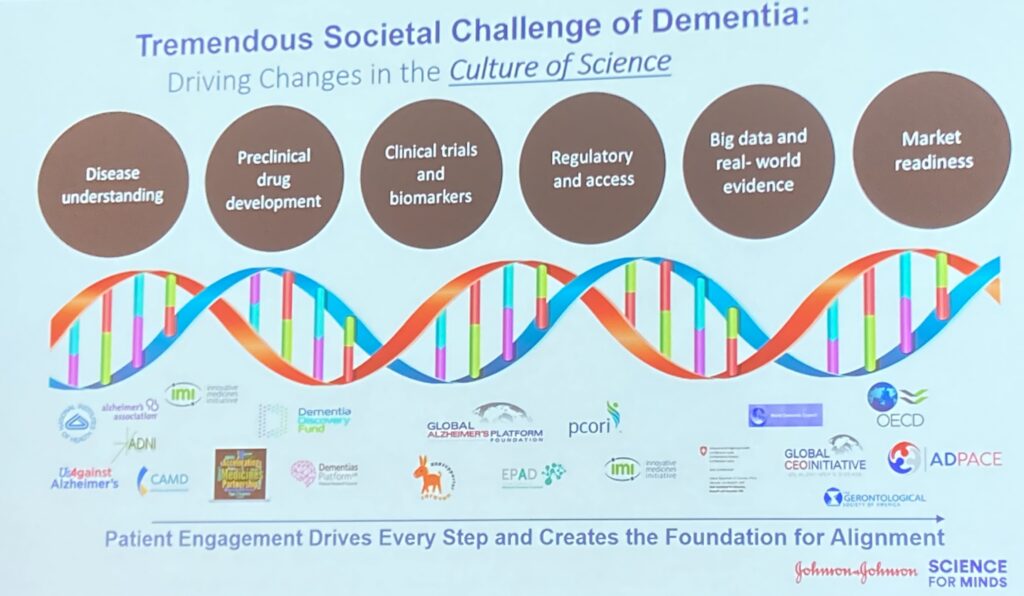
It was agreed that there is a lot more to do in areas, such as,
- Furthering diversity in clinical trials
- Biomarkers
- Funding for dementia
- Accelerating Market Access
- Diagnostics
- Data Sharing
- Public awareness
- Policy change
It’s all very well discussing the future of medical research, but we also need to make a difference to people’s lives NOW.
By coming together today, we have a chance at changing the future of dementia patients.
